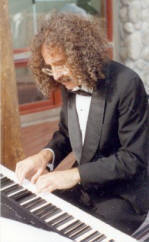These are notes from courses Don has previously taught. Feel free to contact him about presenting these courses to your school or organization.
[I am working on having bilingual versions of my PPTs and notes available in the near future.]
************************************
Setting Words to Music
Related videos:
Rossini's "Cat Duet"
"Sound" scene with Michael J. Fox from the movie "Back to the Future"
Wedding song sheet music
Wedding song orchestral accompaniment
Links
There are many (too many!) options for recording and notating music. Here are my recommendations:
An easy to learn and manage and FREE! sound recording and editing program is called Audicity:
https://www.audacityteam.org
The high-end recording software (often referred to as a DAW -- Digital Audio Workstation -- that I recommend is MixCraft. A DAW called ProTools has long been considered the industry standard, and Cubase has long been the most popular DAW in China, and both can be quite difficult to learn; I consider MixCraft to be what it would be like if you combined all the features of ProTools and Cubase but made it easy to work with! The Mixcraft program can be found at
https://acoustica.com/mixcraft/
A high-end open source free music notation program is called MuseScore. Because it is full featured, it would be possible to design a college-level one semester course for learning everything about this program! However, it is easy enough that the basics are easily learned:
https://musescore.com
An easier notation program is called "finale notepad", a free slimmed-down verision of another major music notation package called "Finale", available at
https://www.finalemusic.com/products/notepad/
Homework
This is the homework from the PowerPoint presentation:
Listen to your world!
Think about how you could put together sounds to express what you hear.
Think about how you could put together sounds to express how you feel.
The Ten Questions
• Go outside and listen. (If you can’t go outside, then stay inside and do this in your imagination.)
• In a notebook, write down your answers to the following ten questions:
- What kind of sounds do you hear?
- Do they sound high or low?
- Do they last a long time or are they short?
- Which sounds, if any, seem to communicate (seem to say something)?
- Which sounds are beautiful and which are ugly?
- Which sounds are loud and which are soft?
- Which sounds seem to stay the same and which seem to move up and down?
- Which sounds let you clap your hands at the same time you hear the sounds if you hear them more than once?
- Where do the sounds come from?
- What are the things that are making the sounds?
• Did you discover anything new from this exercise?
• Try this exercise:
You live on an uncharted island, and you know nothing about music notation. What kind of notation might you invent to represent lengths of sounds? Remember, you’re isolated; no cell phones, no clocks. Consider yourself lucky you have things to write with!
